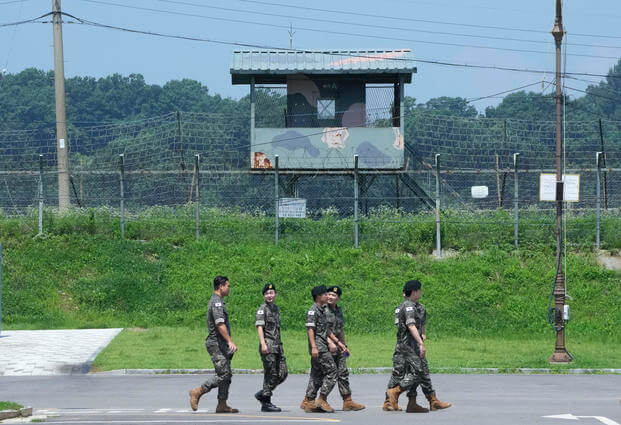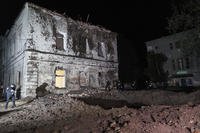SEOUL, South Korea — South Korea and the United States began large annual military exercises Monday to bolster their readiness against North Korean nuclear threats after the North raised animosities with an extension of missile tests and belligerent rhetoric earlier this year.
The South Korean and U.S. forces began a computer-simulated command post training called the Freedom Shield exercise and a variety of field exercises for an 11-day run, the South Korean Defense Ministry said.
North Korea had no immediate response to the major annual drills it regards as a rehearsal for invasion. The North has staged provocative weapons tests in the past in reaction to its adversaries' joint drills.
South Korea’s military said last week that it would conduct 48 field exercises with the U.S. forces this spring, twice the number conducted last year, and that they would involve live-firing, bombing, air assault and missile interception drills.
Since early 2022, North Korea has conducted more than 100 rounds of missile tests to modernize its arsenal as talks with the United States and South Korea have been stalled for an extended period. In response, the United States and South Korea have expanded their training exercises and increased the deployment of powerful U.S military assets such as aircraft carriers and long-range nuclear-capable bombers.
This year, North Korea carried out six rounds of missile tests and barrage of artillery firing drills. Its leader Kim Jong Un also said North Korea would scrap its long-standing goal of peaceful unification with South Korea and take a more aggressive military posture along the disputed sea boundary with South Korea. He also vowed to “annihilate” South Korea and the United States if provoked, a threat that he had previously issued.
The North Korean steps raised worries that it might make provocations along the tense Korean sea and land borders. But experts say the prospect for a full-blown attack by North Korea is dim as the North knows its military is outmatched by U.S. and South Korean forces.
North Korea’s moves to raise tensions are likely related to upcoming elections planned by its rivals: the U.S. presidential election in November and South Korea's parliament election in April. North Korea believes an advanced nuclear arsenal will increase its leverage in future diplomacy and it can win concessions like the easing of international sanctions, experts say.











